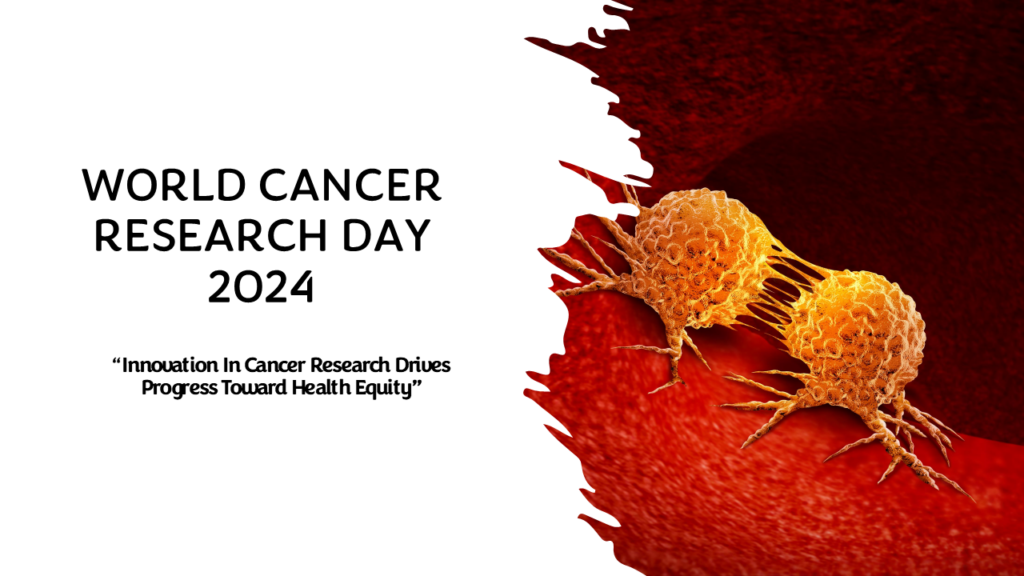World Cancer Research Day 2024, observed on September 24, highlights innovation under the theme “Innovation In Cancer Research Drives Progress Toward Health Equity.” This year’s theme focuses on the need for breakthroughs across all stages of cancer care, from prevention to treatment. As new research reaches more patients, thanks to policies and technological advancements, it’s improving survival rates and bringing us closer to health equity around the world.
2024 has seen significant US Food and Drug Administration (FDA) approvals that are pushing the boundaries of cancer treatment.
Related: World Lymphoma Awareness Day 2024: Building Support, Education, Treatment Advances
Enhertu (trastuzumab deruxtecan), a human epidermal growth factor receptor 2 (HER2)-targeted therapy, has opened new doors for patients with HER2-low breast cancer, offering a critical option for those who had limited choices before.
Opdivo (nivolumab), now available in a newly developed subcutaneous formulation, continues to show impressive results in non-small cell lung cancer (NSCLC) and other solid tumors. The subcutaneous version, tested in the CheckMate-67T trial, allows for faster administration, at three to five minutes.
Lumisight (pegulicianine), a newly approved fluorescent imaging drug, aids surgeons by detecting residual cancerous tissue during breast cancer surgeries, improving surgical accuracy.
Anktiva (nogapendekin alfa inbakicept-pmln) was approved for patients with bacillus Calmette-Guérin (BCG)-unresponsive non-muscle invasive bladder cancer (NMIBC), and Imdelltra (tarlatamab-dlle) offers a new option for those battling extensive stage small cell lung cancer.
Moreover, the combination of Lazcluze (lazertinib) with Rybrevant (amivantamab-vmjw) for epidermal growth factor receptor (EGFR)-positive NSCLC is a huge step forward in helping patients live longer without their cancer progressing.
These advances show just how fast cancer treatments are evolving in 2024, also emphasized in the key motto of World Cancer Research Day 2024.
At the same time, ongoing clinical trials are showing promise for even more breakthroughs. The CheckMate-067 trial recently delivered long-term survival benefits for patients with advanced melanoma treated with Opdivo and Yervoy (ipilimumab). After 10 years, 43 percent of patients from the trial are still alive — an incredible improvement compared to survival rates just a decade ago.
Trials for Merck’s patritumab deruxtecan have also been pivotal, showing significant progress in progression-free survival for patients with EGFR-mutated NSCLC. Meanwhile, Tecelra (afamitresgene autoleucel), is offering hope to patients with synovial sarcoma, targeting specific tumor antigens to treat this rare and aggressive cancer.
Researchers are also pushing the boundaries with checkpoint inhibitors, exploring new combinations and formulations to tackle resistance in tough-to-treat cancers like metastatic melanoma and ovarian cancer, and improving accessibility.
Research Advancements for Rare Cancers
Aside from these headline-making breakthroughs, 2024 has also been a critical year for addressing underserved areas of cancer research.
Rare cancers make up 25 to 30 percent of all cancer cases and deaths, but research has been limited due to smaller patient populations and fewer resources.
Efforts like the NCI-MATCH and Pediatric MATCH trials are using precision medicine to open new doors in treating these cancers. Breyanzi (lisocabtagene maraleucel), a CAR T-cell therapy from Bristol Myers Squibb, has made headway in treating rare cancers, earning FDA approval for relapsed or refractory mantle cell lymphoma (MCL), a rare type of non-Hodgkin lymphoma.
Additionally, the Phase III CABINET study from Exelixis, evaluating Cabometyx (cabozantinib) in patients with advanced neuroendocrine tumors (NETs), which are also rare tumors, showed promising improvements in progression-free survival, making it a potential new treatment option.
World Cancer Research Day 2024 brings us closer to a future where cancer care is accessible and effective for all. These efforts are expanding the reach of cancer care, ensuring that advances in treatment and prevention benefit everyone, regardless of their financial or social standing.











Join or login to leave a comment
JOIN LOGIN